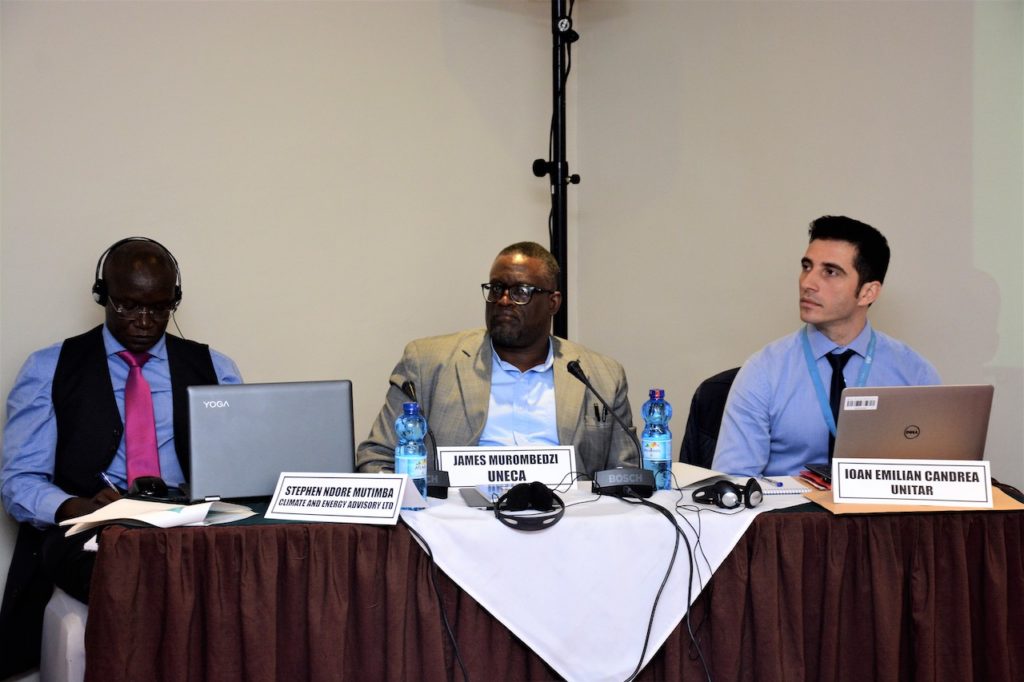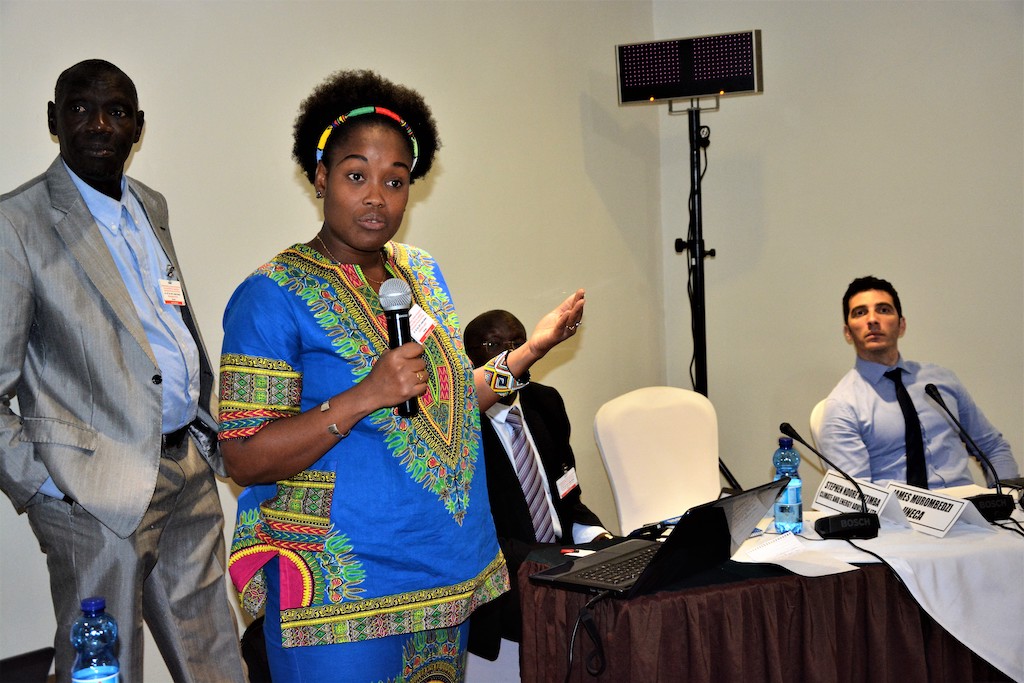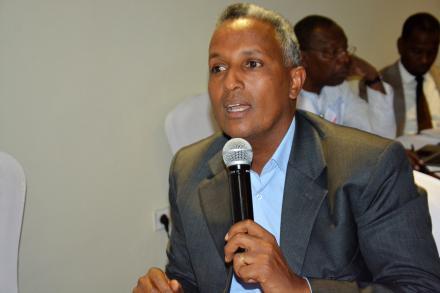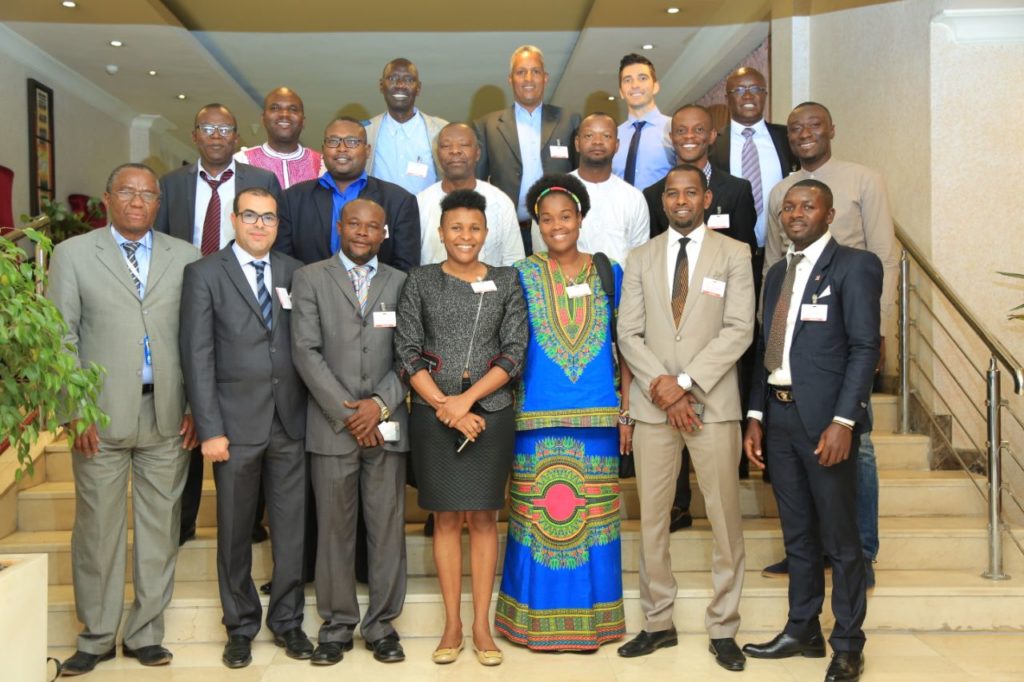..train, train, train..Once you get back home, train, train. No matter the contextual drawbacks, train decision-makers. Never give up! It will make a difference,
concluded Mr. Thierry H. Amoussougbo, Senior Programme Manager at the United Nations Economic Commission for Africa (UNECA), African Climate Policy Center Division.

On 26 October 2017, over 25 trainers, parliamentarians, academia and media representatives from 12 African states met in Addis Ababa, Ethiopia to participate in a Training for Trainers (ToT) on Climate Information and Services conducted by UNECA, one of UN CC:Learn’s partners. Earlier this year, UN CC:Learn launched an e-tutorial on Climate Information and Services in partnership with UNECA. The tutorial is available in English and French.
The basis of the training was the Climate Information and Services e-tutorial previously built in partnership with UNECA and UN CC:Learn. The use of the e-tutorial gave a blended character to the training event enhancing interactivity and learning. There is more training to come, both at the country level as well as sector-specific.

In the context of indisputable global climate change, our society has become increasingly dependent on climate information and services. It has become essential to consider mainstreaming climate information and services into legislation, development planning, and policy for the sake of people’s well-being – whether we talk about the early warning in the context of disaster risk reduction or resilient sectoral planning in general.
Capacity building is therefore key in forming messengers who can carry out specific knowledge sharing at the country level. They can subsequently advocate for the implementation of climate change and services into planning across sectors, including land-use, infrastructure, and agriculture planning to name just a few, so that the end user, the people, can benefit from it.

The Training of Trainers is just the beginning of a series of capacity building events across the African continent. This was an opportunity for the participants to share experiences and lessons learned at the country level. The training aimed at reinforcing and enhancing pre-existing skill sets on training methodologies in the context of climate information and services.
While conducting scenario-based assignments, participants tried to best answer key questions such as: What could they do as trainers or decision-makers to assist the National Meteorological and Hydrological Stations (NMHS), or institutions alike, to provide viable climate information and services? How could they best translate technical language so that local communities and other end-users can benefit from climate information and services?

It was a great experience to be in Addis Ababa and we look forward to many more opportunities to engage with our partners!
